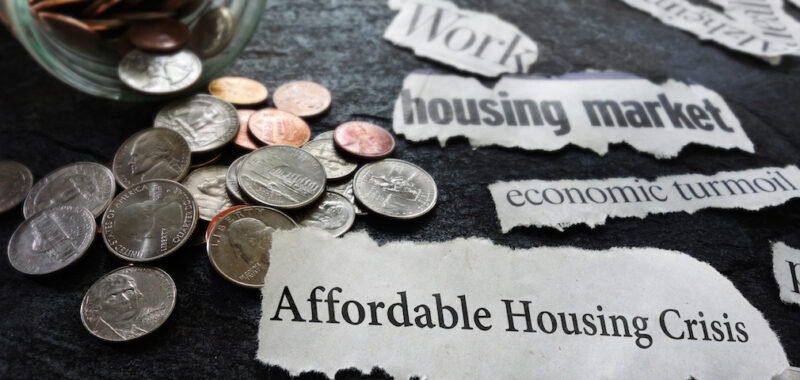In this week’s episode of the Top Of Mind podcast, Altos Research President Mike Simonsen explores the housing affordability and supply crisis facing the U.S. and its major cities.
Salim Furth joins Simonsen to share his expert opinions on the current housing crisis and the various factors that impact new development in certain cities. Furth is a research fellow and the director of the Urbanity Project for the Mercatus Center at George Mason University. His research focuses on housing production and land usage at the local level.
The conversation begins with a question on housing policies and their effects on certain areas in California. Simonsen asks Furth to compare California’s housing policies to other states and to highlight how these policies affect American life.
Furth says that housing policies can affect every aspect of a person’s life — including family formation, friends, travel, recreation and more. The industry, he says, refers to this principle as “the housing theory of everything.“ Unaffordable housing spills into every other aspect of life that affects working-class people and forces them to move to lower-quality areas.
Next, Furth dives deeper into the primary issues facing the housing market. He believes that U.S. housing policies have made it more difficult to build new homes in certain areas due to overly restrictive zoning.
But it still will take more than zoning changes to turn the market around. Furth urges the audience to study housing from a new listings perspective instead of a market price perspective. Higher construction costs create a shortage of listings and vice versa. To address this, solving the development issue is key.
“To me, the real fundamental, long-run thing that’s wrong is that we’ve made it really hard to build new housing primarily through geographic restrictions, what we usually call zoning,” Furth says.
Simonsen follows up with another question about construction activity on an international scale. Further states that under-building is mostly common in English-speaking countries, although some countries are bringing down prices by removing local authority to decline development opportunities. In other words, international governments are wrestling decision-making powers away from local governments when it comes to the creation of new housing.
A few examples Furth cites include Canada, New Zealand and the United Kingdom. Stateside, cities like Memphis and Austin are shifting toward short-term supply gains that can accommodate those interested in moving there, in contrast to cities like San Francisco.
Furth explains that new construction in high-demand areas can defeat housing deficits and retain homebuyers, instead of forcing them to lower-demand areas with lower prices.
Next, the conversation shifts to affordable housing solutions. Furth highlights Austin as a notable example of a city that increased its housing affordability through policy changes — including a reduction in the minimum lot size requirement from nearly 6,000 square feet to 1,800.
Other cities have slashed compatibility requirements and parking guidelines while upzoning. Single-stair buildings, which are designed with a single staircase and fire exit, are also gaining popularity as alternatives for middle-class buyers and cost less to construct.
Following that point, Simonsen mentions another factor that impacts housing development: declining immigration. Furth states that immigration drives construction labor, with developers often resorting to ruthless tactics to bring immigrants into the states.
Simonsen points out that some economists believe that bringing in more immigrants will actually drive up housing costs. Furth disagrees, stating that immigrants often save on housing costs by living with their families. Therefore, housing costs are largely unaffected by immigrating workers.
Simonsen and Furth finish the episode with a broader outlook on the housing market of the future. Furth breaks his forecast into good and bad possibilities.
In a negative scenario, he says, the U.S. could face a prolonged recession that will force the government to ignore housing reform in favor of other issues. Cities could be become more exclusive to high-income workers with working-class people further pushed into outlying areas. And in turn, these once-affordable areas could become oversaturated with working-class homebuyers, causing home prices to rise.
A more positive scenario would see the U.S. post slower growth over the next few years. But major cities would continue to grow and California would continue to reverse its recent population decline.

